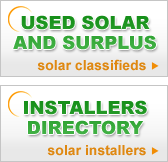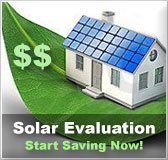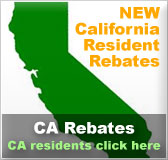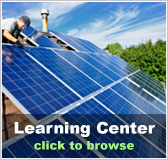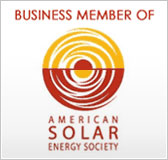Photovoltaic incentive program:
-This State rebate program offers qualifying participants who install
photovoltaics on their homes a grant of either $3,000 or 50% of the
cost of the PV system, which ever is less.
-Requirements for this program include an application, photos of the
installation, an invoice of the equipment and quarterly reports during
the first year of system operation.
Renewable energy loan program – Powder River Energy Corporation:
-This program was designed to help residents of northeastern Wyoming
finance renewable energy systems for their homes.
-The loans are only available to members of Powder River Energy Corporation.
-Maximum loan amount is $2,500 per member at a zero percent interest
rate.
-Loans have a payback period of no more than 36 months.
-Applicants must pay a 4% fee of the total requested loan amount to
apply.
Net metering:
-Net metering is available to customers who have facilities that
generate electricity through solar, wind, methane, biomass, hydropower
or geothermal systems.
-The power produced by the renewable energy system is used to offset
the kilowatt hours consumed each month. The incentive shows up as
a credit on the customer’s monthly bill.
-Customers keep all renewable energy credits connected to the electricity
their system generates.
-Systems must have a capacity of 25 kilowatts or less to be eligible
for net metering.
Residential renewable energy tax credit:
-This personal tax credit allows the taxpayer to claim a credit of
30% of expenditures including labor costs and installation of qualified
residential solar-electric systems, solar water heating systems or
fuel cells. Small wind-energy systems and geothermal heat pumps can
also be accredited for.
-Solar-electric systems and solar water heaters have a maximum incentive
of $2,000 if placed in service before 2009. There is no maximum incentive
for systems placed after 2008.
-The excess amount of the federal tax credit may be carried forward
to the next taxable year if it exceeds tax liability.
-This can be carried forward until 2016, but after that, it is unknown
if the unused credit will be able to be forwarded.
Residential energy conservation subsidy exclusion:
-This is a personal exemption of 100% of energy conservation subsidies
provided by public utilities.
-The value of a purchase or installation of any energy conservation
measure by a customer such as solar water heat, solar space heat or
photovoltaics will not be included in the customer’s gross income.
-Customers of an electric utility company, who participate in the
utility’s energy conservation program, may receive a rate reduction
of electricity furnished or a nonrefundable credit against the purchase
price of the electricity on each monthly electric bill.
Energy-efficient mortgages:
-This is a federal loan program where homeowners can use EEM (energy-efficient
mortgages) to finance renewable energy technologies in a home.

